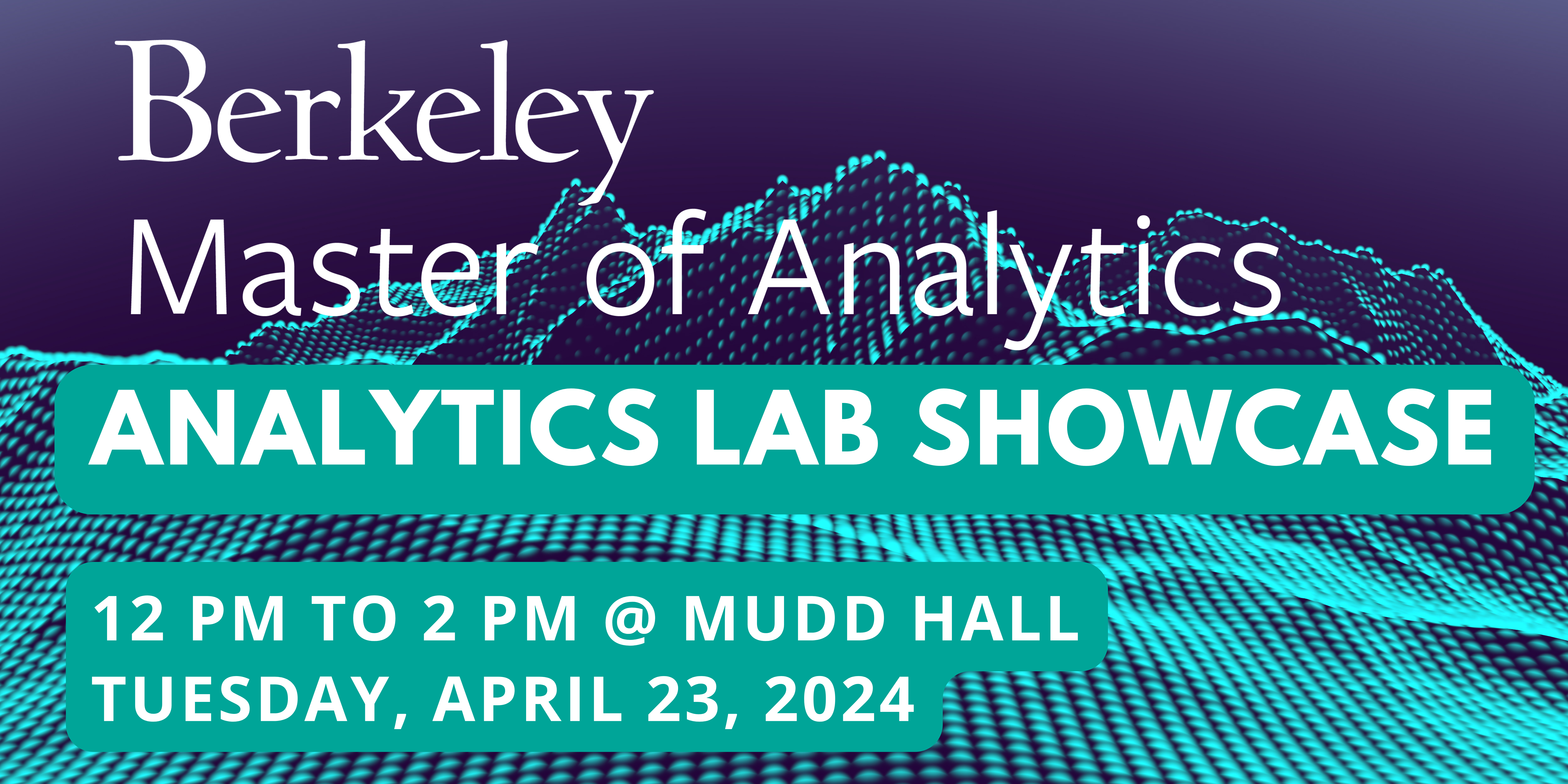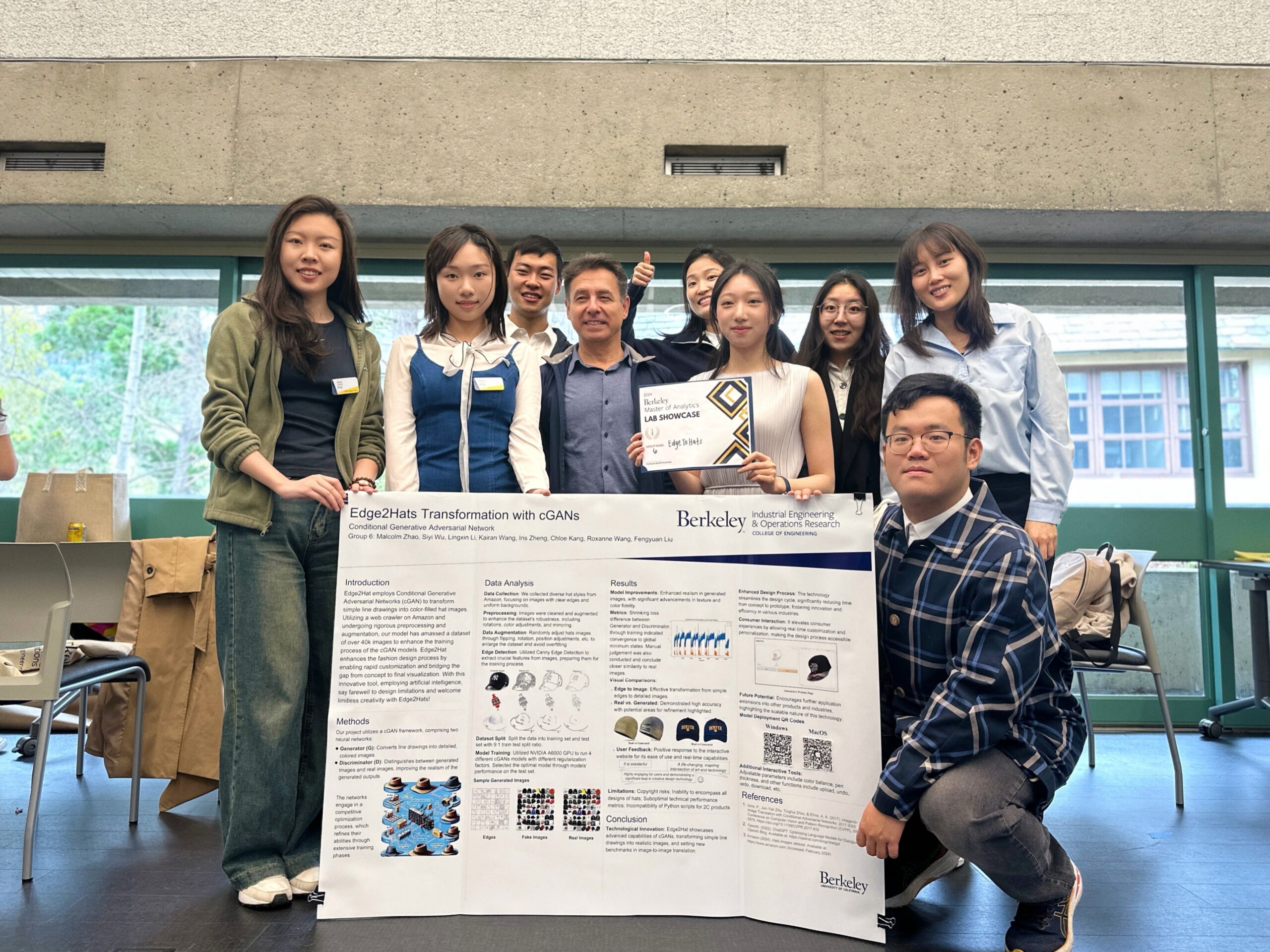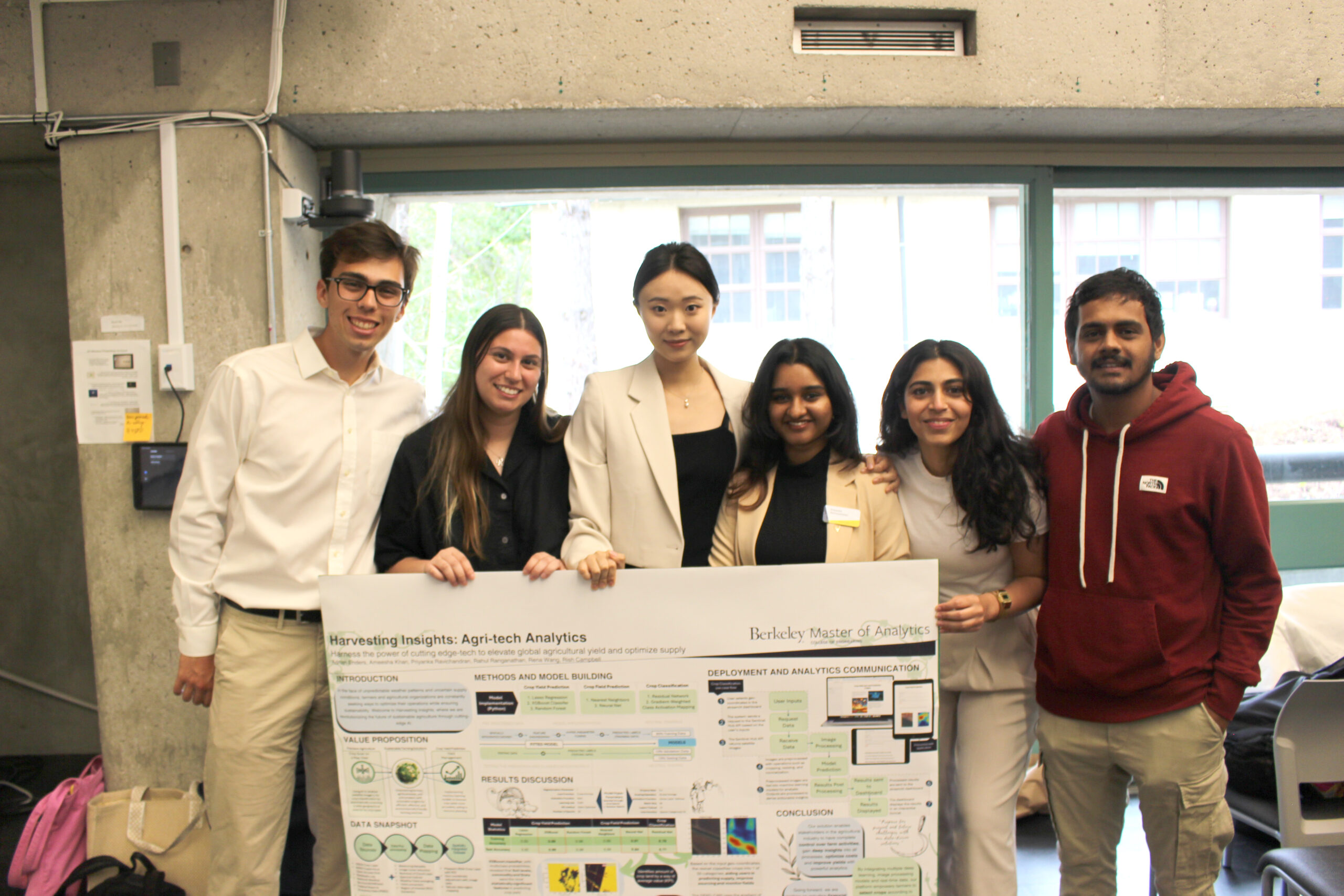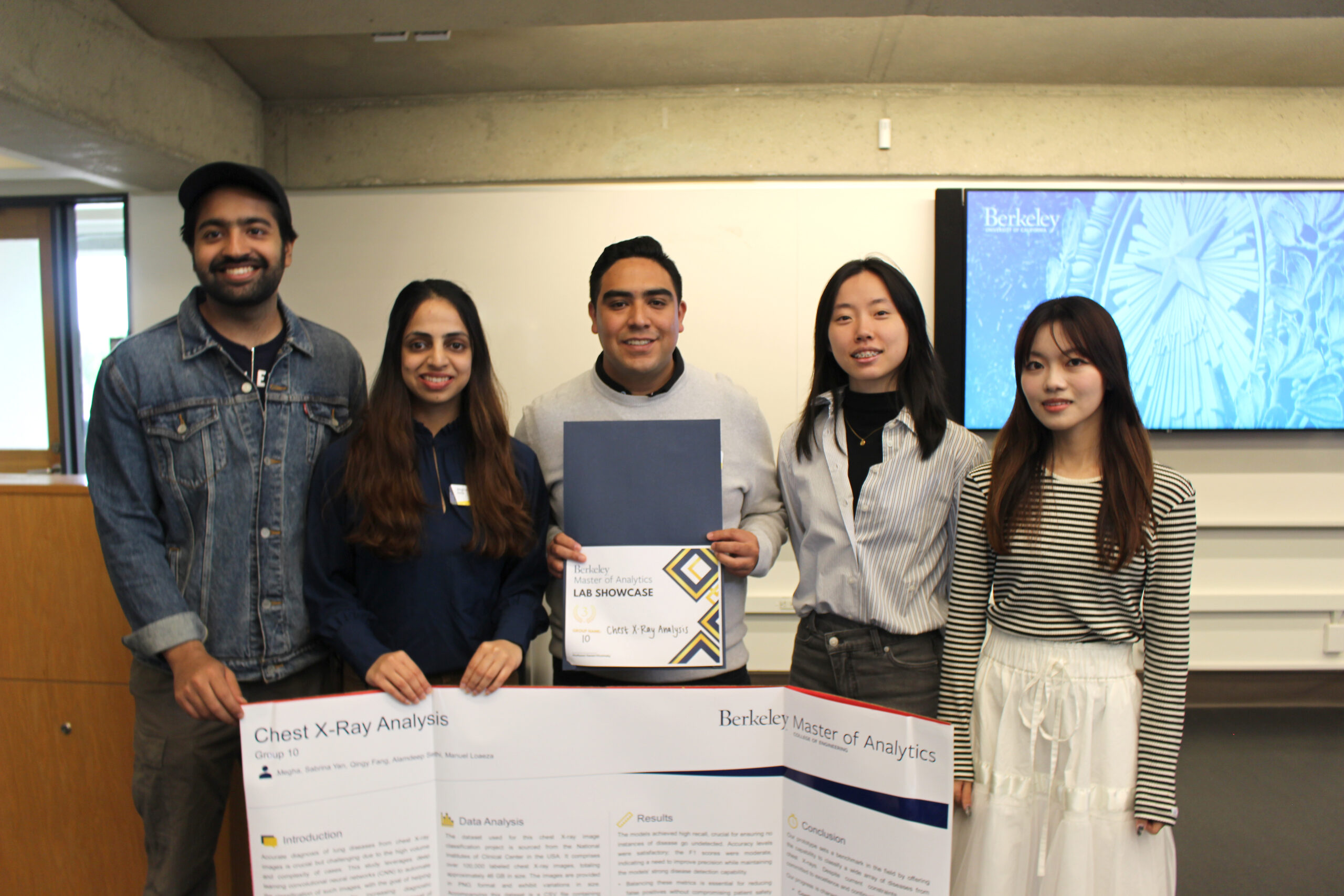Berkeley Analytics Lab Showcase

From posters to app demos and interactive features, the Berkeley Analytics Lab Showcase is a culmination of hands-on analysis and research conducted by Berkeley Analytics students, who utilize cutting-edge analytical methods and quantitative tools to tackle real-world business and industry challenges.
This showcase will explore the transformative power of analytics across an array of industries. From sports and entertainment to the forefront of fashion, finance, generative AI, healthcare, and beyond.
Snapshots from the Event
2024 Winners
First Place
Group 6: EdgetoHats

Team: Roxanne Wang, Fengyuan Liu, Iris Zheng, Kairan Wang, Chloe Kang, Malcom Zhao, Lingxin Li, Siyi Wu
Description: Are you a hat enthusiast or an aspiring hat designer? Embrace boundless creativity with EdgeToHats! Our groundbreaking tool utilizes cutting-edge machine learning models, including conditional generative adversarial networks (CGANs), to revolutionize hat design. CGANs, adept at generating realistic images from conditional inputs, are trained on a diverse dataset of hat designs. This enables them to understand the relationship between hand-drawn sketches and final hat designs, producing personalized outputs of superior quality. By simplifying the design process, users can effortlessly explore a myriad of possibilities. With just a few strokes, users outline their desired hat, and EdgeToHats handles the rest, generating vibrant color schemes and intricate patterns to bring their visions to life. Say farewell to design limitations and welcome limitless creativity with EdgeToHats!
Second Place
Group 1: Crop Classification and Yield Prediction

Team: Rish Campbell, Adrian Enders, Ameesha Khan, Priyanka Ravichandran, Rahul Ranganathan, Rena Wang
Description: Businesses and farmers face the critical challenge of optimizing crop yields amidst fluctuating environmental conditions. Our innovative agritech platform addresses this by seamlessly integrating advanced machine-learning techniques with extensive agricultural data. Leveraging historical records and AI algorithms, our Crop Yield Prediction Model accurately forecasts future agricultural outputs, aiding in strategic decision-making for Farm Management Organizations and Corporate Farming Managers. Furthermore, our Image Classification Model precisely delineates farmland boundaries, optimizing land use and management practices, while our Crop Classification system utilizes Sentinel-2's satellite imagery to discern crop types from above, facilitating tailored agricultural planning and monitoring.
Our methodology empowers users to input specific parameters such as soil pH, humidity, and geographical coordinates to customize predictions, ensuring relevance to local farming contexts. By offering insights on optimal planting dates, crop selection, and disease prevention techniques, our platform enables local farmers to maximize productivity while minimizing environmental impact.
In summary, our agritech platform not only addresses the pressing need for accurate crop yield predictions and efficient land management but also upholds ethical standards in its implementation, ensuring its relevance and reliability in diverse agricultural contexts.
Third Place
Group 10: Chest X-Ray Analysis

Team: .Megha, Sabrina Yan , Qingyi Fang, Alamdeep Sethi, Manuel Loaeza
Description: In the medical field, timely and accurate diagnosis of chest-related ailments from X-ray images remains a significant challenge, often requiring extensive manual effort from radiologists.
Our solution leverages advanced deep learning techniques to automate the classification of chest X-ray images into multiple diagnostic categories. By employing convolutional neural networks (CNNs) with proven architectures, our methodology involves training these models on a comprehensive dataset of over 100,000 images. This approach not only promises to enhance diagnostic accuracy but also significantly reduces the time taken to process and interpret these images, thereby improving the overall efficiency of medical diagnostics.
Event agenda
- 12:00 PM – Welcome Remarks by Student Emcees, Kairan Wang MAnalytics '24 and Roxanne Wang MAnalytics '24
- 12:10 PM – Opening Remarks by Professor Daniel Pirutinsky and Career Services Director Diana Chavez
- 12:15 PM – Student Project Expo Opens
- 1:40 PM – Awards
- 1:50 PM – Closing Remarks by Berkeley Analytics Program Director Alper Atamturk
- 2:00 PM – Event Closes
Guest Judges

Konsta Jokipii
Business Analytics Manager
KONE

Apurva Arni
Senior Program Manager
Tesla

Raushan Khullar
Data Scientist
Kone

Thibaut Mastrolia
Assistant Professor
Berkeley IEOR

Chiwei Yan
Assistant Professor
Berkeley IEOR

Arman Jabbari
Staff Data Scientist
Lyft
2024 Student Projects
If you require an accommodation for effective communication (ASL interpreting/CART captioning, alternative media formats, etc.), please reach out to Jenny Huang at jrhuang@berkeley.edu by April 9, 2024.
